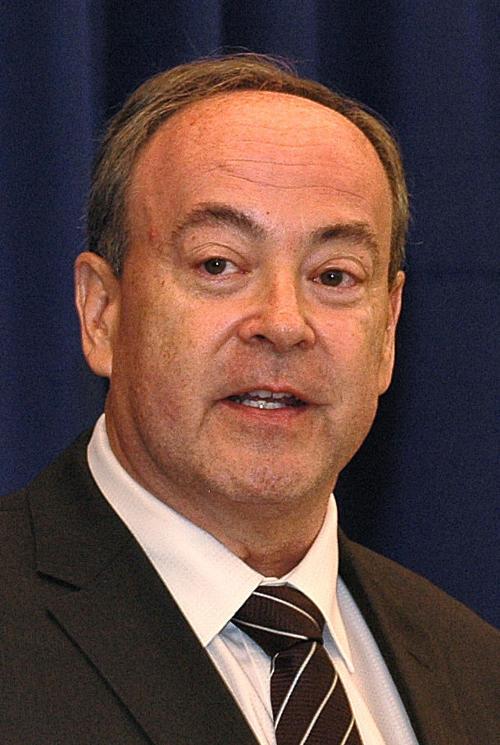PHOENIX — A new lawsuit seeks to void provisions of federal laws that challengers say illegally place the desires of Native American tribes over the constitutionally protected best interests of children.
Attorney Clint Bolick of the Goldwater Institute filed the case on behalf of two children with some Native American blood who currently are placed with non-Indian parents where they have lived since infancy.
The Indian Child Welfare Act gives tribes nearly unfettered authority to decide the best placement of children with links to the tribe, “even those who have never set foot on a reservation,” said Bolick, who also said he wants to protect these two children from being taken from their current homes.
In one case, he said, a boy has been “languishing in foster care for approximately four years.” Bolick said that if the federal law were not in the way, the current parents — the only ones he has known — would have adopted him by now and have promised to provide “appropriate visitation and cultural acclimatization opportunities.”
But the lawsuit extends beyond those two children: Bolick is asking a judge to certify the complaint as a class action on behalf of every Native American child not living on a reservation currently placed with a non-Indian family.
In Arizona alone, he said, more than 1,300 Native American children were in out-of-home care last September.
A ruling in his favor would overturn existing requirements that strip state courts and the Department of Child Safety of their ability to decide placement of children who have Native American blood and essentially preclude non-Native families from adopting Indian children, even with the consent of their biological parents.
In essence, such a ruling would grant primacy to state welfare laws that require courts to give prime consideration to the “best interests of the child.”
But Bolick said the issue goes beyond where children can be placed.
“In Arizona, every child has the right to removal from a home where there are reasonable grounds to believe that protective custody will protect the child from suffering abuse or neglect — every child, that is, except a child that is deemed to be Native American,” he said.
Bolick said the same disparity exists with laws in Arizona and elsewhere that are designed to entitle children to be placed in foster care that will be in their best interests.
“State child welfare laws whose interests are centered on the best interests of the child are forcibly displaced and commandeered by federal law that subjects Native American children to adverse treatments solely because of their race,” he said.
Named as defendants are the top officials at the Department of Interior and its Bureau of Indian Affairs.
Kevin Washburn, the assistant secretary for Indian affairs, vowed to defend the law.
“Nearly 40 years ago, Congress determined that Indian children were being treated unfairly in the context of foster care and adoption,” he said in a statement.
“Congress determined that ‘an alarmingly high percentage of Indian children’ were subjected to ‘unwarranted’ removal from their homes and that a federal law was needed to protect Indian children,” Washburn said. “We firmly believe that the protection of the best interests of Indian children continues to be important today.”
The lawsuit also asks a judge to block Greg McKay, head of the state DCS, from complying with the requirements of the Indian Child Welfare Act. A DCS spokesman had no comment.
The lawsuit does not name Arizona tribes, meaning they will have no role in defending the law. But Delbert Ray Sr., president of the Salt River-Maricopa Indian Community, said it is worth defending.
“Congress declared that the purpose of the Indian Child Welfare Act was to ‘protect the best interest of Indian children and to promote the stability and security of Indian tribes and families by the establishment of minimum Federal standards for the removal of Indian children from their families,’ ” he said.
“That need still exists today,” Ray continued, saying, “The welfare and placement of Indian children remains a legitimate concern for Indian tribes.”
Stephen Lewis, governor of the Gila River Indian Community, called the lawsuit “just another attack on America’s Indian tribes and their inherent sovereignty.”
One of the plaintiffs in the case is a 10-month-old boy who the lawsuit says is eligible for or is already enrolled in the tribe.
“The suggestion that Indian tribes, including the Gila River Indian Community, do not act in the best interests of the children involved in these cases is untrue and offensive,” Lewis said. He said the law “has been largely successful in its purposes, including reuniting Indian families.”
Central to the lawsuit is what Bolick said amounts to race discrimination.
He pointed out that Congress two decades ago wiped out laws that said race and ethnicity can play any role in state-approved adoptions. But Bolick said discrimination remains when cases involve Native-American children.
“Alone among American children, their adoption and foster care placements are determined not in accord with their best interests but by their ethnicity, as a result of a well-intentioned but profoundly flawed and unconstitutional federal law,” he wrote in his legal pleadings.
The lawsuit affects only Native American children not living on reservations, whether in homes with their biological parents or placed with others. Bolick said state laws on adoption and child placement do not extend to tribal lands.





